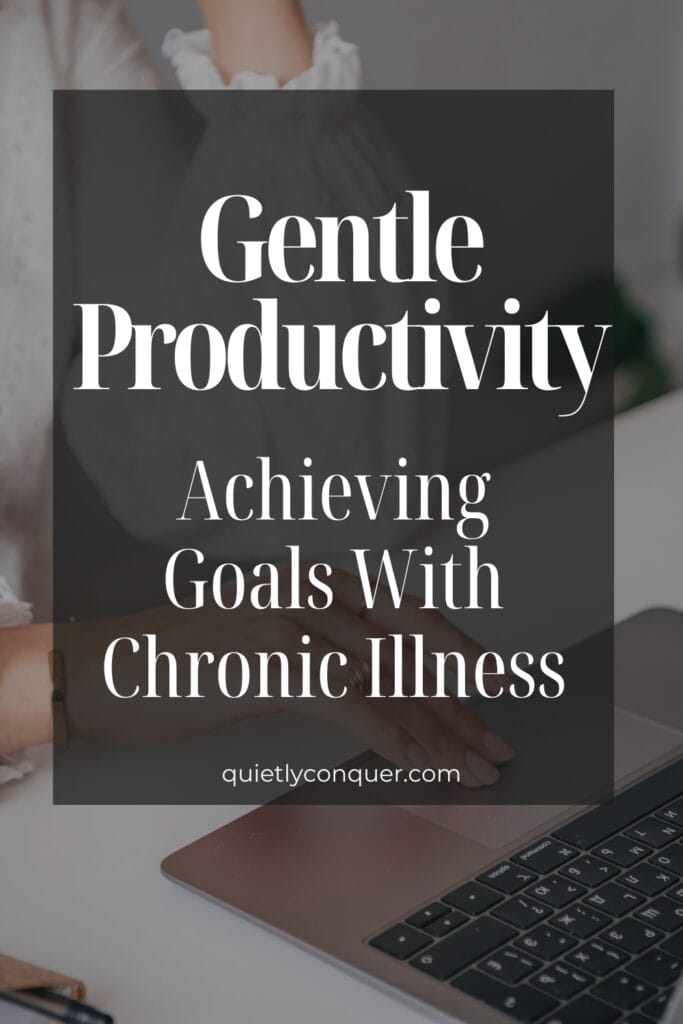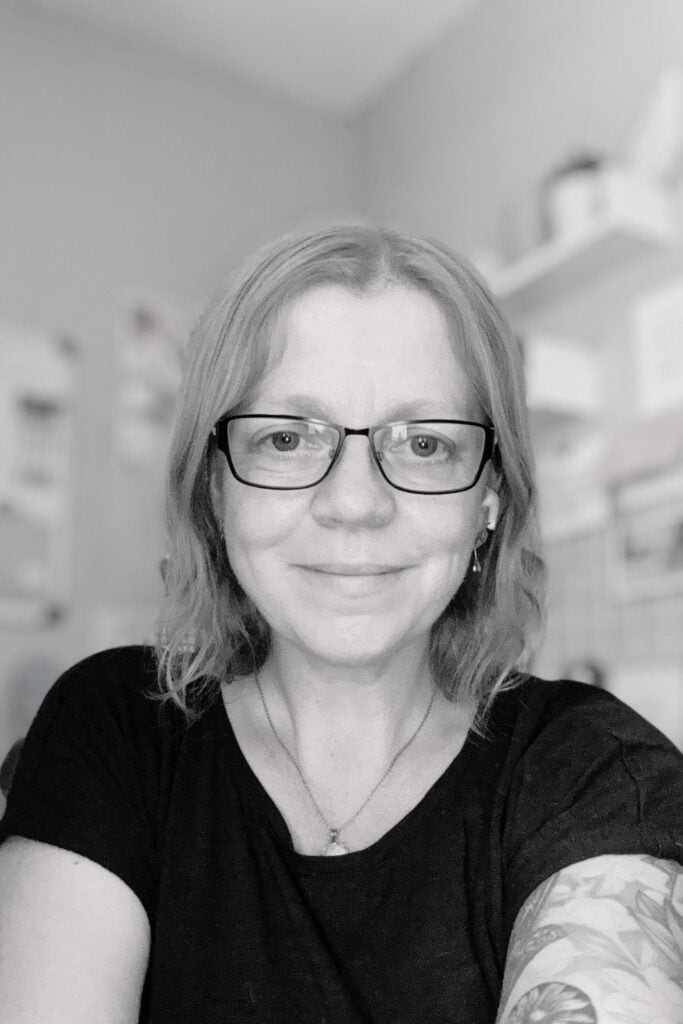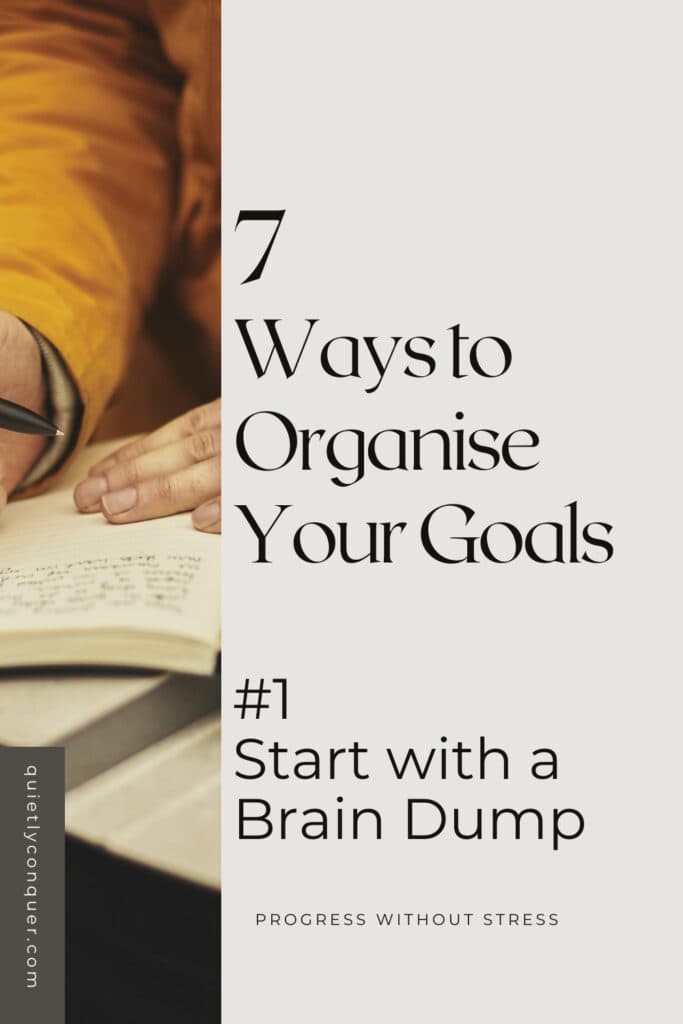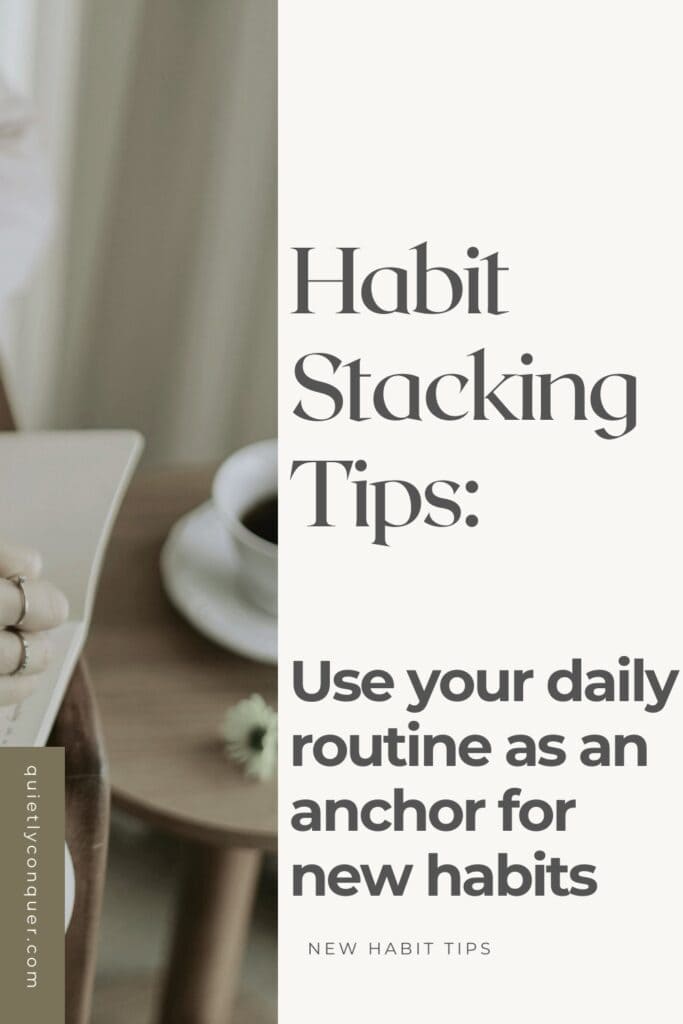Gentle Productivity: Achieving Goals with Chronic Illness

What is Gentle Productivity?
Do you put too much pressure on yourself to achieve goals within a certain time-frame, without acknowledging or showing yourself grace for everything else you're having to manage and adapt to?
I completely understand what it feels like to want to do all-the-things, but being unable to do many of them to the level you want, because of health or fatigue issues, or because of other commitments that means you have less space to focus on goals.
Gentle productivity is about working with your energy, not against it. It’s a compassionate, flexible way of achieving your goals. It values rest, balance, and small consistent steps, rather than pushing to do more.
It’s for anyone who feels burned out by “hustle culture”, or frustrated by fluctuating energy, whether due to chronic illness, mental health, caring responsibilities, or simply life being full on right now.
The focus of gentle productivity isn’t on speed or comparison with others, it’s on sustainable progress, at your own pace.
*Affiliate Disclosure: Some links in this post may contain affiliate links. If you purchase something via the link, I may receive a small commission. This doesn't affect the price you pay.
If you have any questions, reach out for a chat [email protected] or check out my other blogs
Table of Contents
What is Gentle Productivity?
Energy-Based Planning
Gentle productivity may mean different things to different people, but generally, it's about being able to continue to make progress towards a goal, but in a way that doesn't lead to total exhaustion through overworking.
It's a way to plan the route to your goals that not only acknowledges any limitations you may have to deal with, but also encourages you to use rest and flexibility as tools for productivity.
Gentle productivity embraces flexibility and adaptability of goals, strategies, working hours and plans. It's less about the outcome and the timeline, and much more about being able to take those steps forward – regardless of the speed or size of the steps.
Planning may look like this:
Checking in with your energy levels each morning to plan or adapt plans for the day ahead. You may wake up feeling quite energised, so your plans don't need to change. However, if you wake and your energy is low, consider what this means for how you can show up that day.
Use the principles of time and energy mapping, and pacing to create a flexible plan that embraces gentle productivity.
For example, identify tasks based on their energy output:
High Energy Tasks (Red) – Tasks that require higher energy / concentration and focus, and that will need longer recovery time.
Medium Energy Tasks (Orange) – Medium energy tasks that does require some energy and concentration, and some recovery time after.
Low Energy Tasks (Green) – Low energy tasks that are low-effort and less taxing, and don't usually need recovery time.
Once you understand your how your energy naturally flows, you can work with the rhythms. For example, leave your red tasks for when your energy naturally peaks, and choose your green ones when energy is lower.
Self-Compassion and Acceptance
I think one of the hardest parts of dealing with and managing chronic health issues and fatigue is acceptance. As a therapist I've worked with several people over the years who are also diagnosed with ME/CFS, or other conditions like chronic pain, migraines, or long covid.
With each client – myself included – acceptance has always been the hardest part. There is often an understandable, innate fight to find a cure, or to focus only on getting better. Then, by the time they've moved towards acceptance, they're usually just completely exhausted with trying to fix things with no idea how to rebuild.
Once you do choose to move towards acceptance of who you are now, and what life is like for you managing chronic illness, you can finally find a way to focus on making changes, and direct that energy elsewhere.
Gentle productivity is perfect for you if you're at that point of moving forward, but you still need to be very mindful of what you can actually do. I know it can be highly frustrating, but by adopting the gentle productivity approach, you'll see much more progress than if you approached everything with a boom/bust attitude.
Embrace Flexibility
Being flexible with your approach to productivity isn't an excuse for not being productive – it's essential if you want to sustain your progress and growth longer term.
Fluctuating energy levels makes it difficult to be consistent when working towards goals or growing your business, especially if you're measuring your progress based on timed outcomes. If it feels like your peers are zooming ahead with their growth, it can be disheartening and lead to self doubt creeping in.
Embracing gentle productivity, being flexible with your timeline and adapting the way that you work will mean that you can continue to make the progress you need to without worrying that you're not doing enough.
Introduce flexible daily schedules that you can adapt as you need to during low energy days or weeks. Create your own “plan b” where you only focus on the bare minimum of tasks, and everything else gets paused until you can increase your workload again.
Let go of the belief that success only counts if it’s fast. Progress is still progress, no matter the speed.
Setting softer deadlines helps remove pressure and reduce the boom–bust cycle many of us fall into when we push too hard and need longer to recover.
Gentle productivity is not about avoiding work, it’s about pacing it realistically, so you can stay consistent without burnout.
Self-Care and Boundaries
Managing chronic illness or low energy may mean that you have to rest often. Because of this, it can make you feel like you can't give yourself any time for self-care as well. You believe that because you've just been forced to rest for a day or two, and didn't achieve enough, so you now don't deserve time for you as well…
If you struggle with guilt for resting, remember that your body and mind deserves rest, and taking care of them isn't indulgence, it's essential maintenance!
It's the same with boundaries. If you're feeling like you have to make up for lost time, or you need to prove yourself to others, you run the risk of pushing yourself too far.
When you get a bit of extra energy, hold your working boundaries firm. Have your switch off time, and only agree to doing things that you know you can manage. If your decisions around boundaries are based around worrying what others will think, or that you're going too slow, there's more chance of overstretching yourself.
- Decide when you finish for the day (and stick to it)
- Avoid overbooking yourself after a igh-energy day
- Protect your weekends or rest days like you would an important meeting!
Remember, your worth isn't based on what you achieve, and you deserve to take time out for yourself, regardless of how much or how little you believe you've done this week!
Tools Resources & Support
Some of my favourite tools and approaches to help with gentle productivity include:
A timer – Use a timer to set clear, short time boundaries. Stop after 10/15 minutes and take a mini break, it's a fantastic way to break through overwhelm, and manage your energy.
A clear plan (roadmap)A roadmap that shows the steps you need to take to achieve your goal, without deadlines attached to the milestones. By removing the time pressure where possible, you can focus on crossing the tasks off, rather than panicking and not being able to do anything at all.
Task Batching – Task batching is a brilliant way to complete a chunk of tasks in one go. You stay in flow when you're focused on one topic or aspect. For example, spending an hour creating your social images. In the next batch you might start writing captions, or your weekly emails.
Rest – Intentional Rest is a key aspect of productivity – gentle or not! Gone are the days of celebrating overworking and burning out. In the longer term, that way of working probably cost more time and created less productivity because of the time needed to recover from burning the candle.
A journal or Notes App – I highly recommend using a journal or dedicated notebook because you get to dump all of the information stored in your mind. This overload of information is costing you energy, as your brain is busy processing so much data (and trying to remember everything as well as keep you alive), that you easily become overwhelmed. Brain dumps are your best friend, and a great way to declutter your mind.
Final Thoughts
I love gentle productivity and it's something I've embraced for several years now. Gentle productivity isn't about lowering expectations, it's about working sustainably and intentionally. It's helped me dump feelings of guilt and shame around my own speed of productivity, and understand that I am making progress regardless of how fast I achieve those goals.
It's time to let go of the belief that everything needs to be done as quickly as possible. Choosing steady, intentional progress is what will help you make lasting change.
I would love to hear how gentle productivity has helped you – please leave your comment below:
If this post helped or you enjoyed reading it, please share one of the images below as it really helps my blog – Thank You!



Meet Lynsey

Hey there! I'm Lynsey, a counsellor, coach and mentor for women who want to create change, but are feeling lost, uncertain and exhausted. With over 7 years’ experience of training, running businesses, and over a decade as a tutor and adult trainer, I've learned the value of a gentle and intentional approach to work and life that energises you without draining all of your energy.
I've lived with ME/CFS since 2011, and since then re-trained as a counsellor, and achieved a distinction for my Masters in Counselling and Psychotherapy Practice; all while running 4 businesses!
How? Improving your mindset, finding acceptance in yourself, and developing a gentle, but solution-focused approach to achieving goals is key. Knowing that it's not about how fast you move, but finding your own pace and trusting that you can achieve your goals in your own way, one step at a time.
If you'd like to know more about working with me, you can email [email protected] or find me on socials (links in the menu)
Have you seen my online store Quietly Conquer – Find DFY templates, downloads and more!






